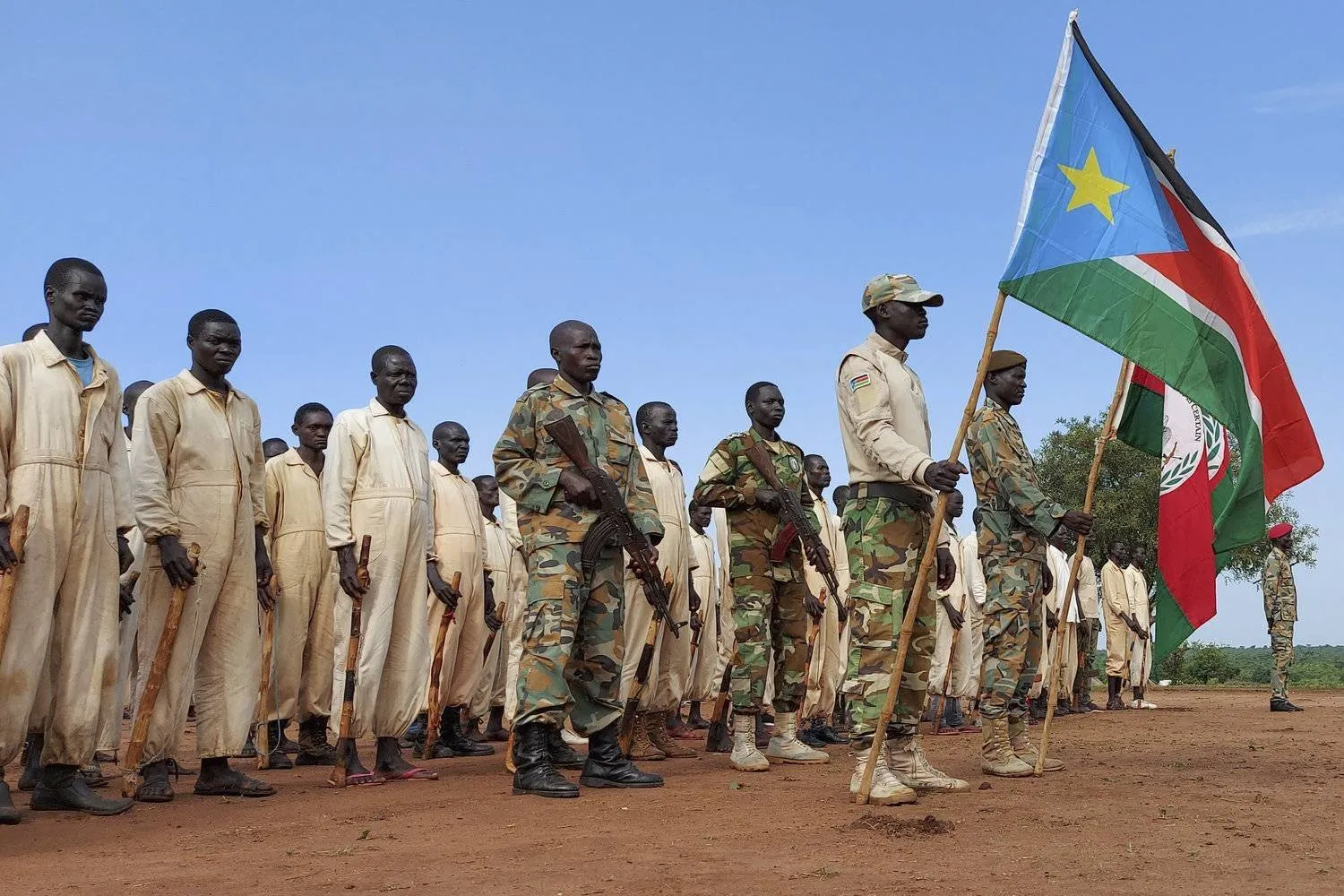South Sudan is not ready to hold its first post-independence elections in December and political players are discussing whether voting should be held this year, the UN’s top envoy in the troubled African country said Wednesday.
Nicholas Haysom told the UN Security Council that the consultations make it difficult to treat the election date of Dec. 22 announced last month by the National Elections Commission “as a definitive trigger in isolation from other critical factors.”
The vote, which would be the first since South Sudan gained independence from Sudan in 2011 after a long conflict, is meant to be the culmination of a peace agreement signed five years ago to pull the world’s newest nation out of a civil war largely based on ethnic divisions. Fighting between forces loyal to the current president, Salva Kiir, battled those loyal to the current vice president, Riek Machar, killing some 400,000 people.
Last December, Haysom outlined a series of conditions needed to hold credible and peaceful elections. In April, he told the Security Council the parties hadn’t implemented a “critical mass” of the key steps for free and fair elections — and he told the UN’s most powerful body Wednesday that his assessment is the same today.
On a positive note, he said the Elections Commission has started assessing “the ground-level infrastructure and facilities required for a conducive environment for conducting elections,” and 29 political parties have been registered.
The UN peacekeeping mission continues “to support the creation of an enabling environment for elections in South Sudan whenever they are held,” focusing on its mandate to help protect civilians, Haysom said..
He said there are concerns among large segments of civil society, political parties, the Commission on Human Rights and the international community about a bill recently passed by South Sudan's parliament that grants the National Security Service the power to make arrests without a warrant.
Critics of the security bill say it contradicts “their aspirations for open civic and political space” to build a democratic society and is incompatible with the spirit of South Sudan's transitional constitution and its human rights obligations, he said.
“It has been noted that the president has the power to refer the law back to Parliament to remedy the criticisms that have been raised,” Haysom said. “This would be a significant opportunity to demonstrate a commitment to achieving the open political space in which to conduct South Sudan’s first democratic elections.”
US Ambassador Linda Thomas-Greenfield told the council that the United States and many diplomatic missions are deeply concerned that the security law could “further erode the country’s political and civic environment.”
Turning to the country’s humanitarian and economic outlook, Haysom warned that “a perfect storm is gathering.”
He pointed to chronic food insecurity, the spillover of the conflict in neighboring Sudan, a rapidly deteriorating economy exacerbated by a ruptured oil pipeline and a cut in revenue, “and the potential for once-in-a-lifetime flooding in September.”
“Any one of these elements on its own presents a significant challenge,” Haysom said. “When taken together, it could push the country to a tipping point — and all during a time where the people of South Sudan are embarking on a delicate phase of nation-building.”
Edem Wosornu, the UN humanitarian office’s operations director, gave the council some stark figures — more than 9 million people, 76% of South Sudan’s population, require humanitarian assistance and 7.1 million are “acutely food insecure, an increase of about 1.5 million people since last year.”
Wosornu said mid-year projections by UN food security experts suggested that conflict and flooding “could result in pockets of famine between June 2024 and January 2025.”
South Sudan’s humanitarian plight is worsened by a deepening economic crisis, she said. Most oil exports have halted since February because of the ruptured pipeline. A more than 70% depreciation of the South Sudanese pound in the first six months of 2024 has made basic commodities unaffordable for many people, with the annual inflation rate reaching 97% in June, according to the National Bureau of Statistics.
UN Envoy: South Sudan is Not Ready to Hold its First Post-Independence Elections in December

File photo: Military trainees parade during the visit of the defense minister to a military training center in Owiny Ki-Bul, Eastern Equatoria, South Sudan on June 27, 2020. (AP Photo/Maura Ajak, File) (ASSOCIATED PRESS)

UN Envoy: South Sudan is Not Ready to Hold its First Post-Independence Elections in December

File photo: Military trainees parade during the visit of the defense minister to a military training center in Owiny Ki-Bul, Eastern Equatoria, South Sudan on June 27, 2020. (AP Photo/Maura Ajak, File) (ASSOCIATED PRESS)
لم تشترك بعد
انشئ حساباً خاصاً بك لتحصل على أخبار مخصصة لك ولتتمتع بخاصية حفظ المقالات وتتلقى نشراتنا البريدية المتنوعة







